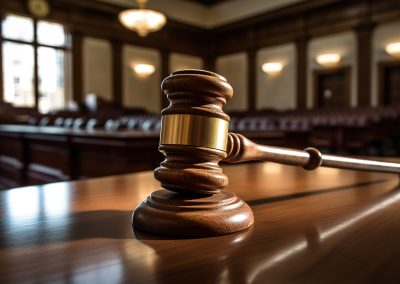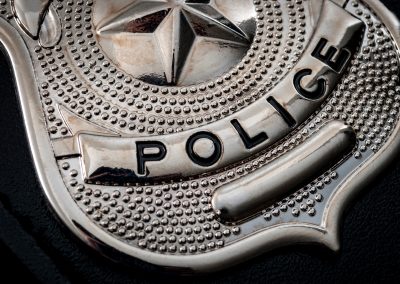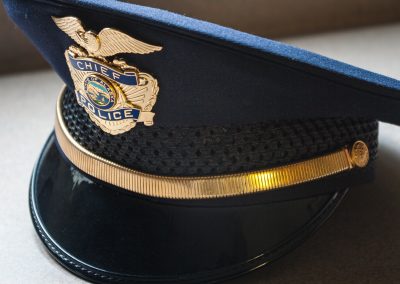It seems as though everyone wants an easy answer to a hard question. Warriors or not warriors, that is the question—at least for this moment.
Never in my lifetime have I seen this country more divided, polarized and ideological. People think that there are black or white solutions in a world that is predominantly gray. Agendas and bias rule. Truth and reality are too inconvenient.
People I respect, admire and trust, who are in positions to lead police officers, I find are on opposite ends of the spectrum about this issue. Should we use the word warrior when training and referring to police officers?
Thoughts on the Matter
There have been thoughtful commentaries on this dichotomy. For my money, the best yet is H.K. Slade’s piece on CalibrePress.com. But, Val Van Brocklin also wrote a great piece on PoliceOne titled “Warriors vs. Guardians: A seismic shift in policing or just semantics?” that’s well worth consideration.
She cites a White House Task Force that was formed in 2014 to review police practices in the wake of highly publicized—and politicized—police shootings. Van Brocklin cited a quote from the task force’s report: “Law enforcement should embrace a guardian—rather than a warrior—mindset to build trust and legitimacy both within agencies and with the public.”
She went on to rightly note that “this isn’t a new idea. Many within policing have been urging such a change since before Ferguson.”
Van Brocklin also quotes Lt. Chad Goeden, the Commander of the Alaska DPS Training Academy, “who specifically instructed his staff to stop using the term ‘warrior.’”
According to Van Brocklin, when asked if he thought the word warrior was nothing more than semantics, he responded: “Words matter.”
I couldn’t agree more. Words do, most certainly, matter. So let’s watch which ones we use and which ones we don’t.
What They Hear
Approximately ten years ago I had a conversation with the police chief of a large agency outside of a major Texas city. He was at a Street Survival Seminar and watched the first three hours. At the lunch break before he left he told me the seminar was great but he couldn’t send his officers because, and I quote here, “It’s too violent.”
The chief, who I will never identify by name or city, told me that he didn’t want his officers to see videos of police officers being murdered because, “I’m afraid they’ll become overly aggressive or quit on me, and neither of those two things can I afford.”
He went on to say that his department was more “customer service” and geared themselves toward a “community-oriented policing mentality.” He added that the type of violence that occurs in the big city (miles away from his) didn’t “bleed over into our town.”
He finished with this quote that is seared in my mind forever: “Bottom line, I’d rather have one of my guys get shot than us accidentally kill the wrong person.”
My response to him was simple: “Why is that an either/or proposition?”
I didn’t get a satisfactory answer. But what I believe he wanted to say was, “I don’t trust my officers.” And I guarantee that his officers got that message regardless of his word choice.
Words do matter.
Warrior or Guardian?
Warrior or guardian? Why are they mutually exclusive? They aren’t. They shouldn’t be.
To pretend that we’re only guardians is preposterous. To act as though we are always warriors is nuts. (Unless you take the time to define warrior as thoughtfully and generously as H.K. Slade does. Most, unfortunately, don’t give it as much thought as he obviously has.)
To train as though we have to be one or the other is ludicrous. The majority of what we do as police officers has nothing to do with crime. But, every second of every day while on-duty, we need to be aware of criminals.
Here is a truth. Almost no one wants to harm police officers. Still, there are about 50,000 assaults on officers every year. 50,000 out of 40,000,000 face-to-face contacts: percentage wise that’s not a lot. Unless of course you are one of the 50,000. The stats don’t matter then, survival does.
So it comes down, once again, to balance. Balance is the key to doing this job effectively.
Unfortunately, balance is also very difficult to achieve as it has a different meaning to everyone, depending on their perspective.
Times A-change
Calibre Press for 32 years had one course, Street Survival. We now have more than a dozen. Why? Because police work is complicated from one moment to the next. It’s not just about physical survival during an individual encounter, it is about surviving a 20 – 30- year career with your wellbeing intact. And to be successful, you have to understand human behavior and be adept at communication skills, while also being tactically minded and in the physical shape necessary to overcome a violent attack.
So what we do now in our seminars is address the reality of the profession and talk about balancing the warrior mentality with being an effective guardian of our democracy. To choose one or the other—warrior vs. guardian—as an overall philosophy is flat-out stupid.
After convicted murderers David Sweat and Richard Matt escaped from a New York State prison, 1,000s of police officers were on the hunt. And, yes, it was a hunt. Sweat was a cop killer and Matt kidnapped and dismembered his boss.
The officers weren’t acting as customer service reps or human resource specialists, they were warriors, walking through forests and clearing buildings. They had to be ready to shoot, to kill, to fight for their lives in the protection of the society they serve. Very few people are emotionally and physically equipped to do that.
When Chechen brothers Dzhokhar Tsarnaev and Tamerlan Tsarnaev were on the run after exploding two bombs at the Boston Marathon, the officers who were looking for them had to have a warrior mentality as well.
On the other hand, when officers deal with people in trouble, those who have been victimized and hurt, the mentally disabled and depressed, we become guardians and caretakers.
So in reality, those two aspects of our collective beings need to be interchangeable–at a moment’s notice. If you examine the incidents when officers are shot and killed, most of the time they are not on a warrior call, but rather a guardian one.
Conclusion
Those in our business, especially those in positions of power—bosses and trainers—who say we have to avoid using terms like warrior, I believe, don’t understand how their words are being understood. They might as well just say, “I don’t trust you.”
When you tell police officers that we can’t use the term Warrior because you don’t want them to become overly aggressive what your words are telling them is that you don’t trust them to know the difference on their own.
The word warrior won’t pollute the brain just as the words customer service won’t make officers more compassionate or the inevitable victims of violence. No. It’s the culture that they reside in that’s important. So we micromanage words, limit terminology and become even more bureaucratic. All of which stifles creativity, innovation and trusting relationships.
Balance is the reality of this job, and trust is the key.










0 Comments